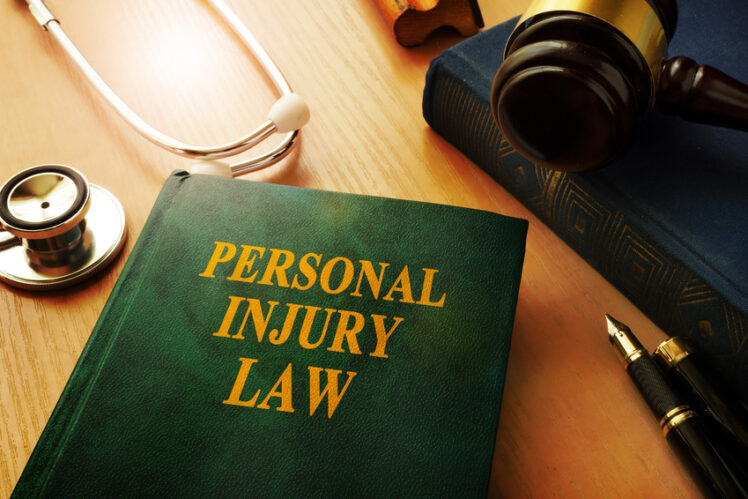Navigating the aftermath of an injury can be a challenging and often overwhelming experience. The right legal support is crucial in ensuring that you receive fair compensation and justice. This comprehensive guide aims to provide valuable tips for finding the right injury lawyer who can effectively represent your interests.
Contents
- Understanding Specialization and Experience
- Checking Credentials and Track Record
- Communication and Compatibility
- Fee Structure and Transparency
- Personalized Attention and Resources
- Accessibility and Location
- Evaluating Their Approach to Case Preparation
- Assessing Their Courtroom Experience
- Understanding Their Approach to Client Education
- Checking Their Professional Network
- Evaluating Their Negotiation Skills
- Considering Their Ethical Record
- Final Thoughts
Understanding Specialization and Experience
When you’re searching for legal representation, it’s essential to consider the specialization of the lawyer. For instance, if you’ve suffered from a slip and fall incident in San Diego, seeking out an experienced San Diego slip and fall lawyer is advisable. These professionals possess specific knowledge and expertise in this area, which is critical for a successful outcome. They are familiar with local laws and regulations, and their experience in similar cases can offer you a strategic advantage.
It’s also important to assess the overall experience of the lawyer. A seasoned attorney who has handled numerous injury cases will likely have a more in-depth understanding of the legal
process and the intricacies involved in such cases. They are often better equipped to navigate the complex legal system, negotiate with insurance companies, and, if necessary, represent you in court.

Source: canva.com
Checking Credentials and Track Record
Credentials are a key indicator of a lawyer’s competence and professionalism. Ensure that the lawyer you are considering is licensed to practice in your state and has a good standing with the state bar association. Additionally, look into their educational background and any additional training or certifications they may have in injury law.
Equally important is the lawyer’s track record. Research their past cases to understand their success rate and the types of settlements or verdicts they have secured for their clients. Testimonials and reviews from previous clients can also provide insights into their capabilities and the level of service they offer.
Communication and Compatibility
Effective communication is fundamental in any attorney-client relationship. Choose a lawyer who is approachable, responsive, and willing to explain legal concepts in understandable terms. It’s crucial that you feel comfortable discussing your case and concerns with your lawyer.
Compatibility also plays a significant role. Your lawyer should share your values and approach to the case. Whether you prefer a more aggressive representation or a more measured, diplomatic approach, it’s important that your lawyer aligns with your expectations.
Fee Structure and Transparency
Understanding the fee structure of an injury lawyer is critical. Most injury lawyers work on a contingency fee basis, meaning they only get paid if you win your case. Make sure you are clear about the percentage they will take and any other potential costs or expenses.
Transparency in all financial dealings is a must. A reputable lawyer will be upfront about their fees and will not have any hidden charges. Ensure that all financial agreements are put in writing to avoid any misunderstandings later on.

Source: resminilawoffices.com
Personalized Attention and Resources
Choose a lawyer who is willing to give your case the personalized attention it deserves. Injury cases can be complex and require significant time and resources. Ensure that the lawyer you select has the necessary resources, such as access to medical experts, investigators, and other professionals who can strengthen your case.
A lawyer who is overloaded with cases may not be able to devote the required time to your case. It’s important to select someone who is readily available and committed to working diligently on your behalf.
Accessibility and Location
The location of your attorney can be more important than you might initially think. Choosing a local lawyer has several benefits, especially in terms of accessibility. If your lawyer is based in your area, it’s easier to meet in person for consultations and updates on your case. Local attorneys are also more likely to have valuable connections and a deeper understanding of the regional legal environment, which can be advantageous in handling your case.
Evaluating Their Approach to Case Preparation
A lawyer’s approach to preparing for your case is a crucial aspect to consider. An effective injury attorney should be meticulous in their investigation and preparation. This includes gathering all relevant evidence, consulting with experts, and building a strong argument to support your claim. A lawyer who takes the time to thoroughly prepare is more likely to anticipate and counteract the tactics used by opposing counsel.

Source: rossmanlaw.com
Assessing Their Courtroom Experience
While many injury cases are settled out of court, there’s always the possibility that your case may go to trial. In such an event, it’s vital to have an attorney with solid courtroom experience. An attorney who is confident and skilled in the courtroom can make a significant difference in the outcome of your case. Ask potential lawyers about their trial experience and their comfort level with presenting in front of a judge and jury.
Understanding Their Approach to Client Education
An often overlooked but important quality in an injury lawyer is their willingness to educate their clients. A good lawyer should not only represent you but also inform you about the legal process and your rights. This empowerment through knowledge can make you a more active and engaged participant in your case, which can be beneficial for its outcome.
Checking Their Professional Network
An attorney’s professional network can be a valuable resource in your injury case. A well-connected lawyer can easily access a network of professionals like medical experts, accident reconstructionists, and economic loss experts. These professionals can provide critical testimony and evidence to support your case. Assessing a lawyer’s network and how they leverage these relationships for their clients’ benefit is a key consideration.

Source: attorneybrianwhite.com
Evaluating Their Negotiation Skills
Most injury cases are settled through negotiations before reaching the courtroom. Therefore, your attorney’s negotiation skills are paramount. An effective negotiator can secure a fair settlement that adequately compensates for your injuries and losses. Inquire about the attorney’s negotiation strategies and past settlements to gauge their proficiency in this area.
Considering Their Ethical Record
An attorney’s ethical record is an aspect you cannot afford to overlook. Check if the attorney has ever been subject to disciplinary action by the state bar association. An attorney with a clean ethical record is indicative of their professionalism and adherence to legal standards.
Final Thoughts
Finding the right injury lawyer is a crucial step in your journey towards justice and compensation. Take your time to research and meet with potential lawyers. Remember, the right lawyer is not just about their credentials or track record, but also about how well they understand your specific needs and situation.
By following these tips, you can find an attorney who is equipped to provide the effective representation you need and deserve. Your journey to recovery, both legally and personally, starts with this vital decision.
